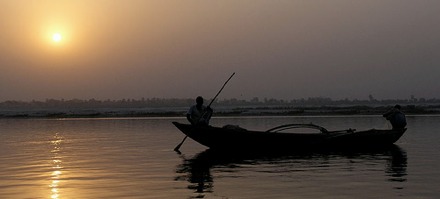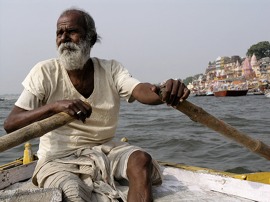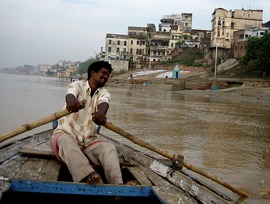(Links updated 29.5.2020) How can we make anthropology public? How survive as politically engaged anthropologist in conservative institutions? Nancy Scheper-Hughes answers these questions in the guest editorial in the new issue of Anthropology Today.
Public anthropology implies usually ‘writing’ for the public – making our work more accessible and also more accountable. A less conventional way of public anthropology is collaboration with journalists and the media, Nancy Scheper-Hughes writes. She did fieldwork on the global traffic in organs alongside journalists from USA, Canada, Brazil, Moldova, Albania, Turkey and the Philippines:
Most anthropologists fear ‘contamination’ by journalism: few scholars are comfortable with articles that may read more like ‘investigative journalism’ than ethnography. But that’s a risk I’ve been willing to take.
I continue to write in various registers with various publics in mind. The anthropological public is just one, though still – in terms of identity and affection – my primary audience. But thanks to collaborations with journalists I now know how to call on ‘fixers’ when I need them and I know how to conduct myself in radio and TV interviews, which does not come easily to academics.
(…)
To make anthropology public is to invite criticism as well as to face ‘erasures’ of ownership of research findings once we share these with journalists, for whom anthropologists are simply a ‘source’, sometimes named but never fully ‘acknowledged’. Even so, it is satisfying to see one’s work appear on the front pages of the New York Times or the Sunday Times Magazine, and thereby surreptitiously enter into a more public discourse than if we guard our research findings as ‘private property’.
Anthropologists have much to learn from journalists:
In teaching graduate seminars on genocide, the writings of anthropologists often pale beside the work of political journalists like Philip Gourevitch (1998), Mark Daner (1994) and Alma Guillermoprieto (1994). A little professional humility would go a long way to foster the potential for collaboration drawing on the strengths and skills of each.
Of course, collaboration with investigative reporters is not always easy:
However, the more I collaborate with skilled national and international reporters and documentary filmmakers, the more I am impressed with their thoughtfulness, thoroughness, dedication to accuracy and their own very different ethical and political sensibilities.
Nancy Scheper-Hughes stresses that the goal of public anthropology is to make public issues, not simply to respond to them:
This is what I have tried to do for the past decade with the Organs Watch project: to make the global traffic in humans for their organs into a pressing social issue requiring a global, multilateral response. At the beginning of the project (1998) I was ridiculed and drummed out of transplant meetings. (…) Bearing out Virginia Woolf’s contention that ‘ridicule, obscurity and social cen sure are preferable to fame and praise’, my interventions eventually bore fruit at the 2008 Istanbul summit of international transplant professionals, where we jointly and unanimously passed the Istanbul Declaration on Organ Trafficking and Transplant Tourism.
But as we know, it is risky to be a public intellectual:
Scholars who want to reach diverse publics – through popular writing, speaking, or participating in social activism – are not only under rewarded by their universities, they are often penalized for ‘dumbing down’ anthropological thinking, cutting social theory into bite sized ‘sound bites’, ‘vulgarizing’ anthropology, sacrificing academic standards or (in the US) for playing to the anti intellectual, illiberal American popular (working) classes. Public service here tends to mean service to the academy – our discipline or uni versity – rather than service to global publics.
Is it possible to both study and participate in social change? Nancy Scheper-Hughes tells us about her first mentor, Hortense Powdermaker. Originally, she saw the roles as activist and researcher incompatible. However, moved by the student campus rebellions of 1968 and ’69, towards the end of her life Hortense began to reconsider her views.
She held her last public speech at the student Kroeber Anthropology Association Meetings in May 1970, just a month before she died:
She concluded her cautionary tale by directly addressing the angry, radicalized Berkeley students: ‘So you want to do your own thing? Then just do it! I’ve always done my own thing and I’ve gotten away with it too! […] I was a rebel in the 1920s […] avantgarde before it was the fashionable thing to do! In [Goucher] college I was a rebel of one. So, if you want to be a rebel or a revolutionary, if you want to join the struggle of the workers or of racially oppressed minorities, my hat is off to you! Do it! But for heaven’s sake don’t expect to get college credit for it!’
Paraphrasing Hortense Powdermaker: you want to be a public anthropologist – then do it! I always did. But don’t expect to be rewarded for it. Instead, consider it a precious right and a privilege. Be grateful that, despite the tendency of bureaucratic intuitions toward social con servatism, we can still ‘do what we want and get away with it too!’
So, how does one survive in the academy as a politically engaged anthropologist? Ironically, by keeping one’s public engagements fairly private, she writes:
And very much like the first generation of working mothers, you do double time, keeping up with expected home front duties, with the expected rate of scholarly productions of books, arti cles and graduate students, participating in academic meetings, etc. while simultaneously doing human rights work, serving on international panels, giving keynote speeches in places and at events that don’t matter a hoot to one’s peers.
And something important: Express your views, don’t wait unitil you’re tenured:
Finally, don’t be overly cautious in expressing heterodox views or taking heretical positions. Don’t wait until you are safely tenured to jump into the public fray. If you do, you may find you have lost what I call ‘the habit of courage’. But protect yourself by keeping up with the expectations of the academic home front.
And, she adds, don’t complain about overwork and under pay:
Just be glad they don’t pull you off the stage and haul you off to jail for speaking your mind, and for being what academic administrators sometimes call a ‘loose cannon’.
That is the privilege of academic freedom in a flawed but still viable democratic society, the privilege to be engaged in national and global struggles against injustice, exploita tion, racism, homophobia, unjust wars and for the rights of immigrants, minorities and political prisoners. If anthropology cannot be put to service as a tool for human liberation why are we bothering with it at all? A public anthropology can play its part in all these devel opments: it has an opportunity to become an arbiter of emancipatory change not just within the discipline, but for humanity itself.
The whole article “Making Anthropology Public” is not available to the general public (!), only to subscribers.
Nancy Scheper-Hughes has been much in the American media recently. The American Anthropological Association has collected some links, see their entry Anthropologist Investigates Organ Trafficking Ring.
UPDATE Times Higher Education writes about Scheper-Hughes’ article: Institutions slap down those who speak up, argues campaigning scholar
SEE ALSO:
Why anthropologists should become journalists
Marianne Gullestad and How to be a public intellectual
“Anthropology needs to engage in an activist way”
“Discuss politics!” - How anthropologists in Indonesia engage with the public
More and more anthropologists, but they’re absent from public debates - “Engaging Anthropology” (1)
Blogging and Public Anthropology: When free speech costs a career






Recent comments